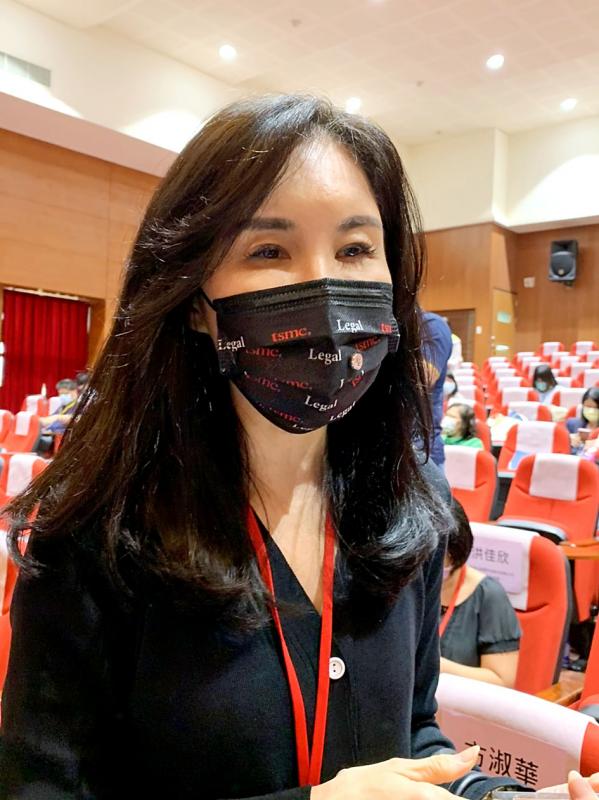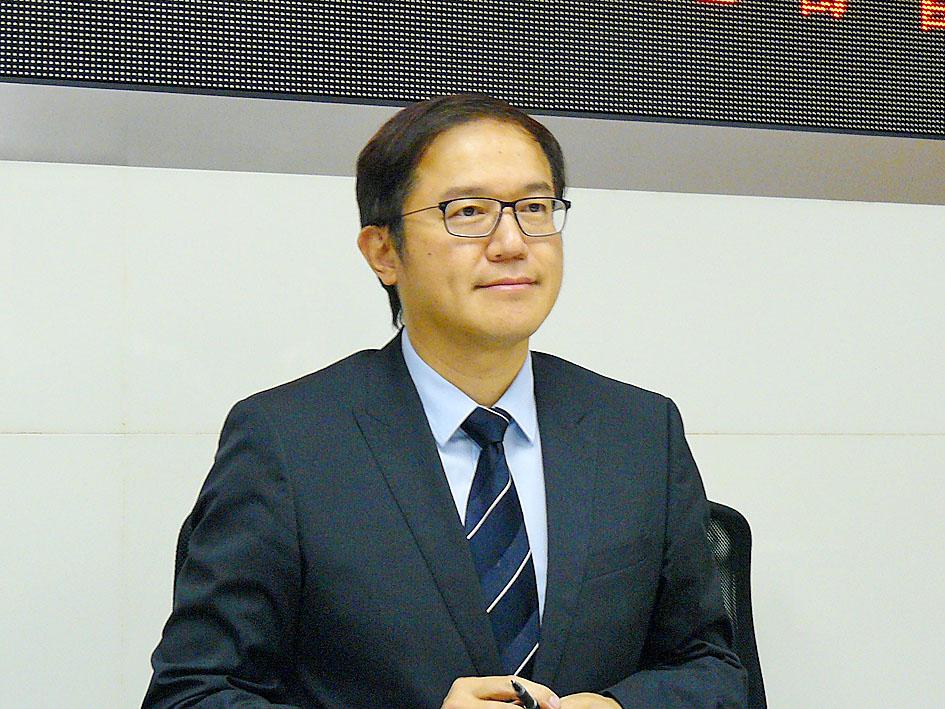The efforts of the administration of US President Joe Biden to untangle global chip supply snarls is facing resistance from lawmakers and executives in Taiwan and South Korea, complicating attempts to resolve the bottlenecks hurting industries from automobiles to consumer electronics.
The US Department of Commerce late last month asked companies in the semiconductor supply chain to fill out questionnaires by Nov. 8 seeking information regarding the ongoing chip shortage. While the request is voluntary, US Secretary of Commerce Gina Raimondo has told industry representatives that the White House might invoke the Defense Production Act or other tools to force their hands if they do not respond.
The issue has become particularly thorny in Taiwan, home to Taiwan Semiconductor Manufacturing Co (TSMC, 台積電), which accounts for more than half of the global contract chipmaking market. That dominance has prompted rivals such as Intel Corp to call for more domestic investment, and spurred governments in the US, EU, Japan and China to mull efforts to bolster their own chip industries to reduce their reliance on the world’s most advanced semiconductor manufacturing hub.

Photo: Grace Hung, Taipei Times
“TSMC absolutely will not hand over sensitive information, particularly client data,” TSMC general counsel Sylvia Fang (方淑華) told reporters on Wednesday.
Three of TSMC’s top five customers are in the US, with the largest, Apple Inc, accounting for a quarter of total sales.
“TSMC is still assessing how to respond,” Fang said.

Photo: Grace Hung, Taipei Times
Smaller peer United Microelectronics Corp (聯電) declined to comment on how it would respond to the US query, although chief financial officer Liu Chi-tung (劉啟東) said that the company would protect customers’ non-public information.
The South Korean Ministry of Trade, Industry and Energy on Wednesday released a statement expressing concern over the scope of the US request. The Joongang Daily also cited unidentified people at local chipmakers as saying that they might have a difficult time complying with the requests.
The potential standoff comes as chip shortages are going from bad to worse. Lead times in the industry — the gap between putting in a semiconductor order and taking delivery — rose for the ninth month in a row to an average of 21.7 weeks last month, the Susquehanna Financial Group said. That is by far the longest since the firm began tracking the data in 2017.
In the questionnaire, chipmakers were asked to comment on inventories, backlogs, delivery times, procurement practices and what they were doing to increase output.
The US Department of Commerce is also requesting information on each product’s top customers.
However, the department has come to realize that many are struggling with the questionnaire and it is preparing an information handout to help companies respond, Fang said.
“If the US is looking to resolve supply chain issues, we will see how we can best assist them,” Fang said. “We have done a lot to help, including increasing output of auto chips and prioritizing auto customers to a certain degree.”
The US reach for chipmaker data has also run into resistance from Taiwanese politicians and shareholders. The Ministry of Economic Affairs on Saturday said that Taiwanese chipmakers would not provide information pertaining to “trade secrets” without consent from customers, offering its support as they communicate with clients and the White House.
That has not quelled the protest from opposition lawmakers.
“Taiwan should not cave in automatically when it comes to dealing with the US,” Chinese Nationalist Party (KMT) caucus whip Alex Fai (費鴻泰) was reported saying on Wednesday. “If we supply the US with all the information it’s seeking, will TSMC still be competitive in the world in the future?”
An individual investor petitioned a district court in Taiwan earlier this week to prevent TSMC from handing over sensitive information, including the names of its customers, to foreign governments, said Rachel Huang (黃雨柔), a lawyer representing the person at Liu & Partners (華通國際法律事務所) in Taipei.

TAKING STOCK: A Taiwanese cookware firm in Vietnam urged customers to assess inventory or place orders early so shipments can reach the US while tariffs are paused Taiwanese businesses in Vietnam are exploring alternatives after the White House imposed a 46 percent import duty on Vietnamese goods, following US President Donald Trump’s announcement of “reciprocal” tariffs on the US’ trading partners. Lo Shih-liang (羅世良), chairman of Brico Industry Co (裕茂工業), a Taiwanese company that manufactures cast iron cookware and stove components in Vietnam, said that more than 40 percent of his business was tied to the US market, describing the constant US policy shifts as an emotional roller coaster. “I work during the day and stay up all night watching the news. I’ve been following US news until 3am

UNCERTAINTY: Innolux activated a stringent supply chain management mechanism, as it did during the COVID-19 pandemic, to ensure optimal inventory levels for customers Flat-panel display makers AUO Corp (友達) and Innolux Corp (群創) yesterday said that about 12 to 20 percent of their display business is at risk of potential US tariffs and that they would relocate production or shipment destinations to mitigate the levies’ effects. US tariffs would have a direct impact of US$200 million on AUO’s revenue, company chairman Paul Peng (彭雙浪) told reporters on the sidelines of the Touch Taiwan trade show in Taipei yesterday. That would make up about 12 percent of the company’s overall revenue. To cope with the tariff uncertainty, AUO plans to allocate its production to manufacturing facilities in

Six years ago, LVMH’s billionaire CEO Bernard Arnault and US President Donald Trump cut the blue ribbon on a factory in rural Texas that would make designer handbags for Louis Vuitton, one of the world’s best-known luxury brands. However, since the high-profile opening, the factory has faced a host of problems limiting production, 11 former Louis Vuitton employees said. The site has consistently ranked among the worst-performing for Louis Vuitton globally, “significantly” underperforming other facilities, said three former Louis Vuitton workers and a senior industry source, who cited internal rankings shared with staff. The plant’s problems — which have not

COLLABORATION: Given Taiwan’s key position in global supply chains, the US firm is discussing strategies with local partners and clients to deal with global uncertainties Advanced Micro Devices Inc (AMD) yesterday said it is meeting with local ecosystem partners, including Taiwan Semiconductor Manufacturing Co (TSMC, 台積電), to discuss strategies, including long-term manufacturing, to navigate uncertainties such as US tariffs, as Taiwan occupies an important position in global supply chains. AMD chief executive officer Lisa Su (蘇姿丰) told reporters that Taiwan is an important part of the chip designer’s ecosystem and she is discussing with partners and customers in Taiwan to forge strong collaborations on different areas during this critical period. AMD has just become the first artificial-intelligence (AI) server chip customer of TSMC to utilize its advanced